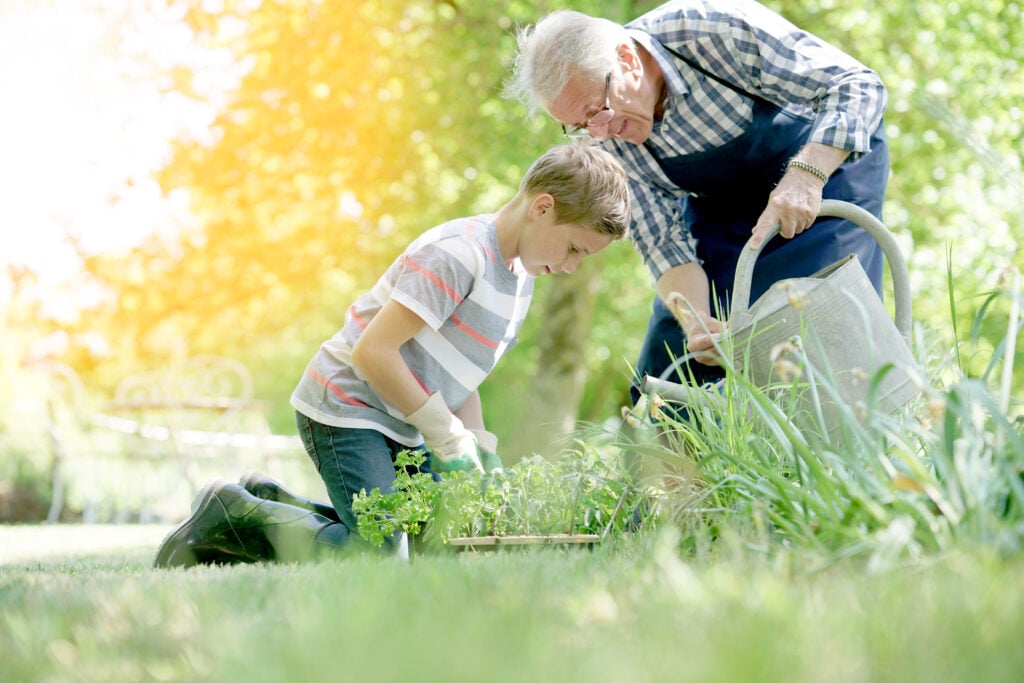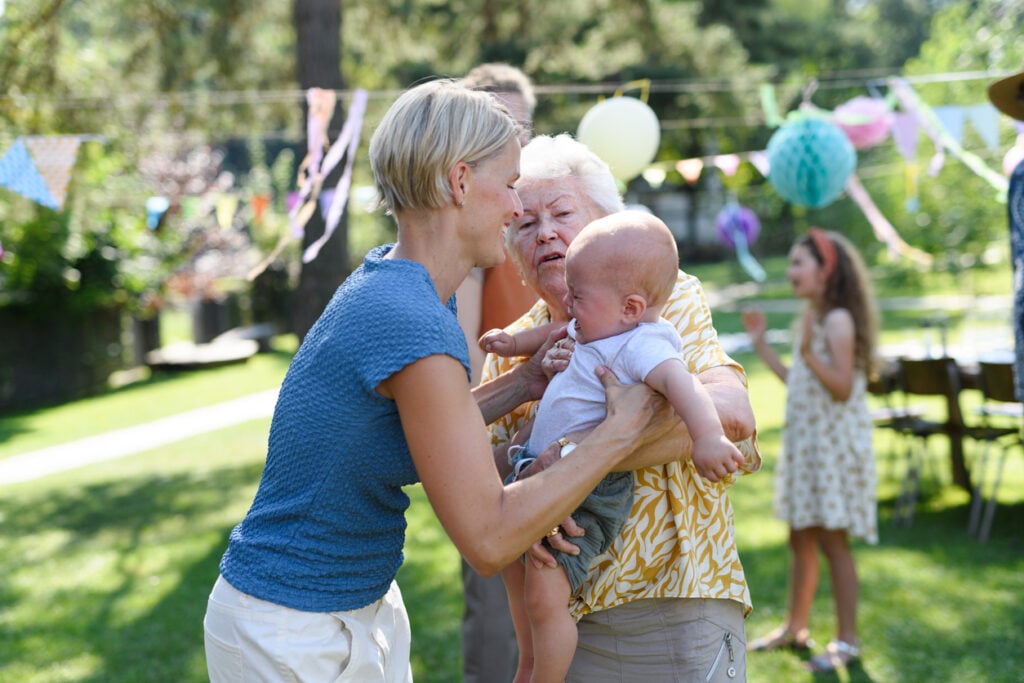Taking on parenthood again is a challenge many seniors never expected.

Retirement was meant to be a time of rest and freedom, but for many seniors, it has taken an unexpected turn. Instead of enjoying their golden years, they find themselves stepping back into the demanding role of full-time parent. The pitter-patter of little feet brings joy, but it also presents overwhelming emotional, financial, and physical challenges. From navigating modern parenting to managing their own health while raising a child, these seniors face unique obstacles.
Understanding these struggles is the first step toward finding the support and solutions they need to thrive in this new reality.
1. The financial burden of raising children on a limited income.

Most seniors rely on Social Security, pensions, or retirement savings—none of which were designed to support a growing child. The costs of food, clothing, school expenses, and medical care can quickly add up, making it difficult to stretch an already tight budget. Many grandparents must delay retirement, take on part-time work, or apply for financial assistance, according to Help Guide.
To ease the financial strain, seniors can seek government benefits such as SNAP (food assistance), Medicaid, or child welfare programs. Local charities and non-profits may also provide grants or support for grandparents raising grandchildren. Consulting with a financial planner can help create a sustainable budget that ensures both the child’s needs and the grandparent’s retirement security.
2. The physical demands of parenting at an older age.

Chasing after young children, managing school routines, and handling daily chores can be exhausting for seniors, especially those with mobility issues or chronic conditions like arthritis or heart disease. Many grandparents experience increased fatigue, aches, and difficulty keeping up with the energy levels of young kids.
To manage these physical demands, seniors should prioritize their health by staying active with low-impact exercises like swimming or walking. They should also seek help from family, friends, or community programs that offer respite care. Making time for rest and using adaptive tools—such as ergonomic furniture or mobility aids—can also help ease the strain of caregiving.
3. The emotional stress of an unexpected parenting role.

Taking in grandchildren often follows traumatic family circumstances, such as parental neglect, addiction, or incarceration. Seniors may struggle with feelings of grief, loss, or resentment over their disrupted retirement plans. Additionally, the emotional needs of their grandchildren—who may also be dealing with trauma—can add to the stress.
Seeking emotional support is crucial. Therapy, support groups, or faith-based counseling can provide a safe space to process emotions and connect with others in similar situations. Finding moments for self-care, whether through hobbies, meditation, or social activities, can also help prevent burnout and maintain emotional resilience.
4. Legal and custody challenges can be overwhelming.

Many grandparents do not have legal custody of their grandchildren, making it difficult to make medical, educational, or financial decisions on their behalf. Without formal guardianship or adoption, seniors may face obstacles in enrolling the child in school or accessing health care.
Seeking legal advice early on can help clarify custody options and secure necessary legal rights. Many states offer kinship care programs that provide guidance and financial aid. Nonprofit organizations and legal aid services can assist in navigating the complexities of custody, guardianship, or adoption to ensure stability for both the child and the grandparent.
5. Social isolation and lack of peer support.

While their peers enjoy retirement or travel, many seniors raising grandchildren find themselves socially isolated. Parenting again can create a disconnect from friends who don’t understand their new responsibilities, leading to loneliness and a lack of emotional support.
To combat isolation, seniors should seek out grandparent support groups, whether in person or online. Community centers, churches, and non-profits often offer programs designed specifically for grandparents raising children. Staying connected with friends, even through small gatherings or phone calls, can help maintain a sense of social balance.
6. The challenge of keeping up with modern education.

Education has changed dramatically since most seniors raised their own children. From advanced technology to different teaching methods, helping grandchildren with homework can feel overwhelming. Schools now rely on digital platforms for assignments, making it difficult for grandparents who are less tech-savvy.
Seniors can bridge the gap by taking advantage of free online resources, technology classes, or tutoring programs for their grandchildren. Connecting with teachers and utilizing school support services can also make education more manageable. Encouraging children to become independent learners helps ease the burden on grandparents.
7. Behavioral and emotional challenges in children.

Children being raised by grandparents often come from difficult situations, including trauma, neglect, or loss. This can manifest as behavioral issues, emotional withdrawal, or difficulty trusting authority figures, adding to the stress of caregiving.
Understanding trauma-informed parenting techniques can help navigate these challenges. Seeking professional counseling for the child and joining parenting support groups can provide valuable guidance. Establishing a stable, loving environment with clear communication and boundaries can also help children feel safe and supported.
8. Balancing medical needs for both generations.

Many seniors already face their own medical concerns, such as high blood pressure, diabetes, or mobility limitations. At the same time, they must manage their grandchild’s health care, including vaccinations, doctor’s visits, and dental care. Juggling both can become overwhelming, especially without proper health coverage.
To stay on top of medical needs, seniors should establish a routine for both their health and their grandchild’s. Taking advantage of community health services, Medicaid, and caregiver support programs can provide financial and logistical relief. Prioritizing their own well-being ensures they remain strong enough to care for their grandchildren.
9. The difficulty of maintaining discipline and authority.

Many seniors struggle with setting rules and discipline, especially if their grandchild has had inconsistent parenting in the past. Grandparents may feel guilty enforcing rules or fear pushing the child away, leading to household conflicts.
Maintaining structure is essential. Setting clear expectations, maintaining open communication, and using positive reinforcement can create a sense of stability. If behavioral challenges persist, seeking help from a family therapist or school counselor can provide additional support and guidance.
10. Dealing with the uncertainty of the future.

Many grandparents worry about what will happen to their grandchildren if their health declines or they pass away. Without a clear plan in place, children may face instability or be placed back into the foster care system.
Creating a legal and financial plan is crucial. Seniors should work with an attorney to establish guardianship plans, trusts, or wills to ensure their grandchild’s future is secure. Appointing a trusted family member or friend as a guardian can provide peace of mind.
11. Finding time for self-care and personal fulfillment.

Caring for grandchildren full-time leaves little time for personal hobbies, travel, or relaxation. Many seniors sacrifice their own needs, leading to burnout, stress, and declining mental health.
Prioritizing self-care is essential for long-term caregiving. Scheduling time for rest, social outings, or enjoyable activities helps prevent exhaustion. Seeking help from respite care programs or family members can provide necessary breaks. Maintaining a balance between caregiving and personal fulfillment is key to both the grandparent’s and child’s well-being.
Raising grandchildren is one of the most selfless acts a senior can take on, but it comes with undeniable challenges. Understanding these obstacles and seeking the right support can make the journey smoother, ensuring both the grandparent and grandchild thrive despite the difficulties.
